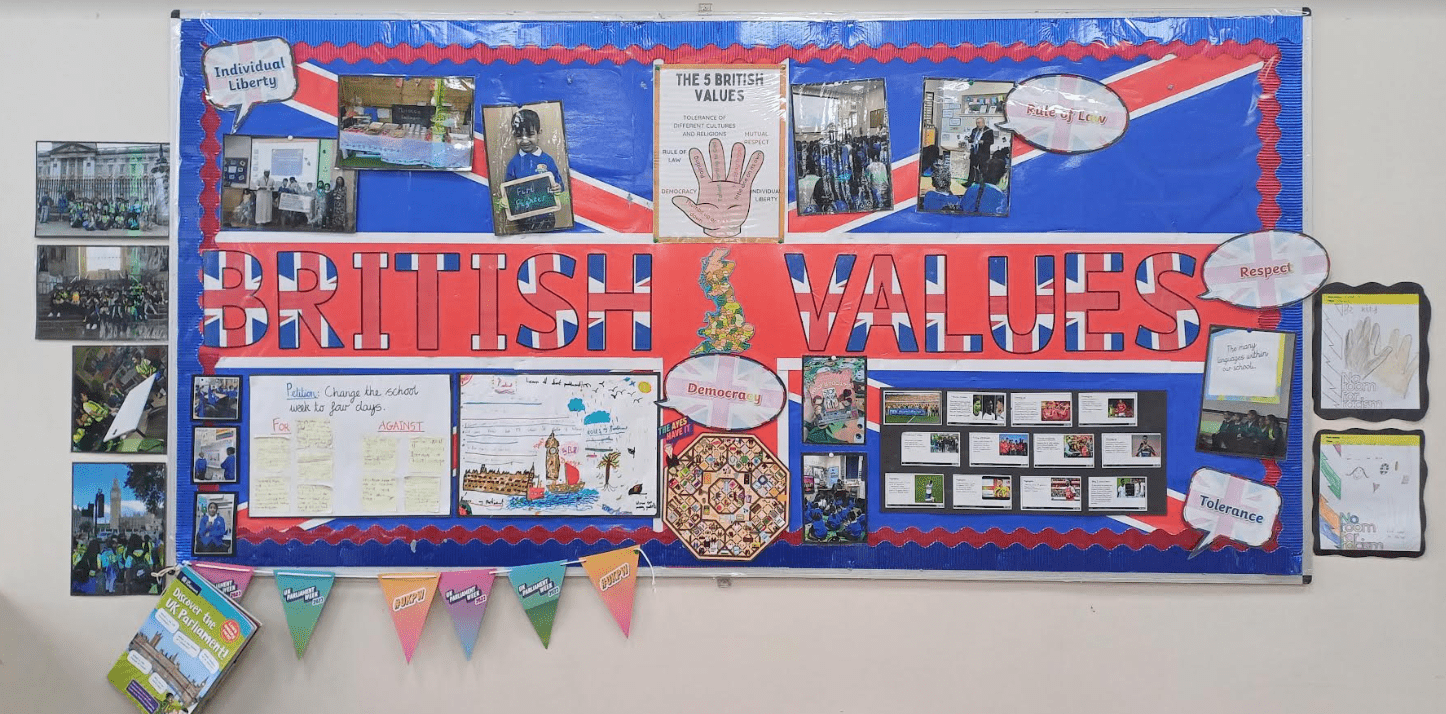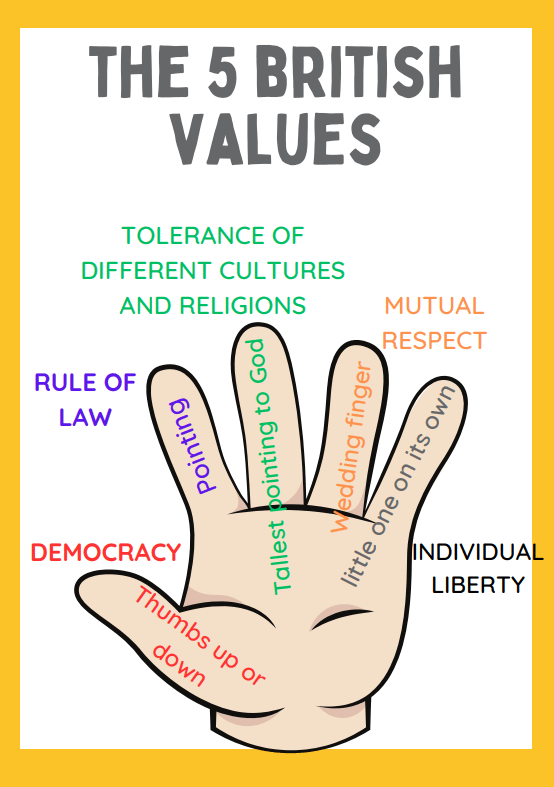"PSRE teaches us to be kind and respectful to each other." "We learn about respecting others, how to look after our minds and bodies and that it’s okay to be different." "PSRE is one of my favourite subjects. It’s about how we act and how we respond to others." "It teaches us how to solve problems and helps us to remember how to act when we’re older. It will help us to become good citizens." "We connect together as a class and as a community. We’re all brothers and sisters in Islam but we treat all religions the same. We’re all equal." "PSRE is about so many different things: kindness, respect, love, social media, celebrating different religions, bullying and our behaviour!"
PSRE
“PSRE (Personal, Social and Relationship Education) is a school subject through which pupils develop the knowledge, skills and attributes they need to keep themselves healthy and safe, and prepare for life and work in modern Britain. Evidence shows that well-delivered PSRE programmes have an impact on both academic and non-academic outcomes for pupils, particularly the most vulnerable and disadvantaged.”
What makes us good citizens?
It is the job of the education system to prepare our young people for the challenges and opportunities of a changing world. Whilst many parts of the school experience can contribute to creating an active citizen, citizenship education can specifically address these challenges. Citizenship is the only subject in the national curriculum that teaches about the way democracy, politics, the economy and the law work. Democracies depend upon citizens who, amongst other things, are:
- aware of their rights and responsibilities as citizens
- informed about the social and political world
- concerned about the welfare of others
- articulate in their opinions and arguments
- capable of having an influence on the world
- active in their communities
- responsible in how they act as citizens.
These attributes of a citizen have to be learnt. While a certain amount of citizenship may be picked up through day-to-day experiences, it can never in itself be sufficient to equip citizens for the sort of active role required of them in today’s complex and diverse society.
How and what we learn at Warwick Road
All the children in school access the Jigsaw scheme of work. Jigsaw nurtures children to be confident and happy, increasing their capacity to learn, whilst preparing them for the challenges of the modern world. Developed by teachers and well-being experts, Jigsaw provides children with opportunities to develop their emotional intelligence and life skills. Jigsaw holds children at its heart and its cohesive vision helps children to understand and value who they are and how they fit and contribute to the world.
Jigsaw brings together PSHE Education, compulsory Relationships and Health Education, emotional literacy, mindfulness, social skills and spiritual development. It is designed as a whole school approach, with all year groups working on the same theme (puzzle) at the same time at their own level. There are six puzzles (half-term units of work) and each year group is taught one lesson per week. All lessons are delivered in an age- and stage-appropriate way so that they meet children’s needs. Each puzzle starts with an introductory assembly, generating a whole school focus for adults and children alike.


PSRE LTP
POL-ED
This academic year, we have incorporated Pol-Ed into our PSRE curriculum. Pol-Ed is a West Yorkshire Police education programme, written by teachers for teachers in schools across West Yorkshire. Its purpose is to keep children safe by developing their understanding of risks, consequences and the law, and to develop their resilience and ability to help and support each other. The programme links directly to the PSHE scheme of work, covering learning objectives across each of the three core themes; health and wellbeing, relationships and living in the wider world.
Pol-Ed aims to support teachers in developing the knowledge, skills and attitudes in their children which they need in order to make positive choices in potentially challenging or dangerous situations. It encourages them to become active thinkers and supportive bystanders to their friends within school, and the wider community. All children are potentially at risk and all children deserve to know how to protect themselves, to understand the benefits of supporting each other and to know how to get help if they need to.
Schools have a key role to play in imparting this information and, through Pol-Ed, West Yorkshire Police aims to support schools in getting key safety messages across to children in an age appropriate manner and which builds their resilience and confidence to be successful and protected from harm in today’s society.
SECRETS OF SUCCESS
We use the Secrets to Success programme to promote personal, social and emotional development. This approach teaches pupils 8 key aspects to be successful life-long-learners. The 8 aspects are discussed regularly in phase assemblies and children are rewarded for demonstrating one or more of these 8 areas:
Try new things
It is important that we all experience success. Finding something that we are good at builds confidence. Some pupils may not be good at the things they spend most of their time doing at school, which can make it even more important that schools have a broad and rich curriculum with something for everyone. As adults, however, we learn that just because we may be good at something doesn’t necessarily mean that we enjoy it. Successful people enjoy what they do. In fact, they love what they do.
Work hard
This is something that most of us don’t want to hear. If we want to get really good at something, there are no short cuts. Accomplishment is all about practise and hard work. Pupils need to understand the benefits of working hard. They need to know that work is good and not something that should be avoided. Many pupils become frustrated if they don’t accomplish something immediately. It is important to teach them that it may take hours and hours of hard work to become really good at something and that in real life success does not come easily.
Concentrate
Children are living in the most intensely stimulating time in the history of the Earth. They are bombarded with images from television advertisements, websites, games consoles and mobile phones. It has never been so important to teach our children how to concentrate. We aim to teach the children how to concentrate.
Push yourself
To be really successful, pupils need to learn to push themselves. There are lots of ways pupils need to push themselves. For example, when they don’t feel like doing things, when they feel shy, when they think they might fail and when their friends are trying to stop them doing what they want to do. It can be really difficult to push oneself, but it is essential for success.
Imagine
In 1968, George Land gave 1,600 five-year-olds a test in divergent thinking. This involved finding multiple solutions to problems, asking questions and generating ideas. The test results were staggering: 98% scored at what he described as ‘genius’ level. He then re-tested the same children at age ten, by which time the level had declined to 30%. By fifteen years of age, only 12% of the children scored at the genius level. The same test given to 280,000 adults placed their genius level at only 2%.
The test shows what most of us know: children have a fantastic imagination, which mostly declines with age. To help children to be successful we need to help them to keep having ideas as they get older.
Improve
Successful people are always trying to make things better. This doesn’t mean there is anything wrong with what they have but they know that there is always room for improvement. They try to make good things great. Rather than making any radical transformations; however, they tend to make lots of small adjustments. This is what we can teach our children: great things do not happen suddenly. They are the result of lots of tweaking and refinement. We can all make things a little bit better. We can all take small steps to greatness.
Understand others
Successful people use what they know to try to be useful to others. Instead of asking ‘What’s in it for me?’ they ask, ‘What can I give?’ If we look at a successful business, it gives people things they value, at the right price. If we look at a successful public service, it gives people what they value at the right time.
Don't give up
Successful people have bad luck, setbacks, failures, criticism and rejection but they always find a way around these problems. Children need to understand that if they have bad luck, they are not alone. Most of us tend to focus on the accomplishments of successful people rather than their mishaps or setbacks. We need to tell children about the times we failed, were rejected and criticised but also how we bounced back.
Progression of skills document
Subject policy
Parental support
https://actionforhappiness.org/
https://www.nhs.uk/every-mind-matters/supporting-others/childrens-mental-health/
https://www.youngminds.org.uk/professional/resources
https://happiful.com/tag/kids/
https://www.theredcard.org/england/
https://www.mindmoose.co.uk/parents/
PSRE lead: Miss F Patel
PSRE governor: Rokaiya Khan
Miss Patel is our PSRE leader. Please speak to Miss Patel if you would like to find out more about how we teach our PSRE curriculum at Warwick Road Primary School.






